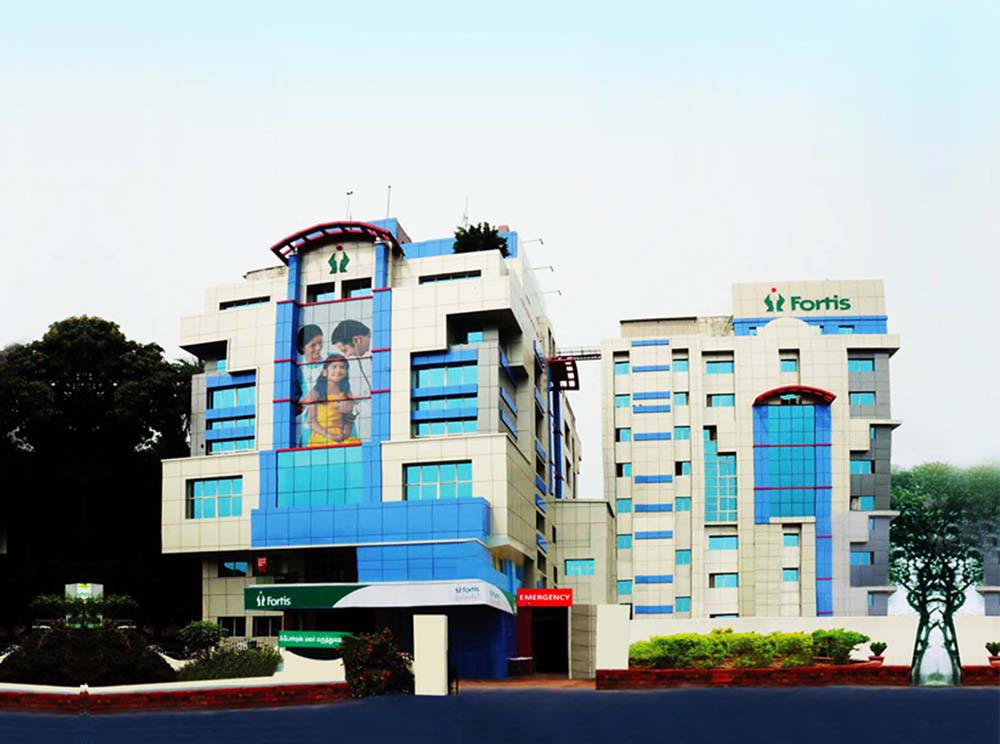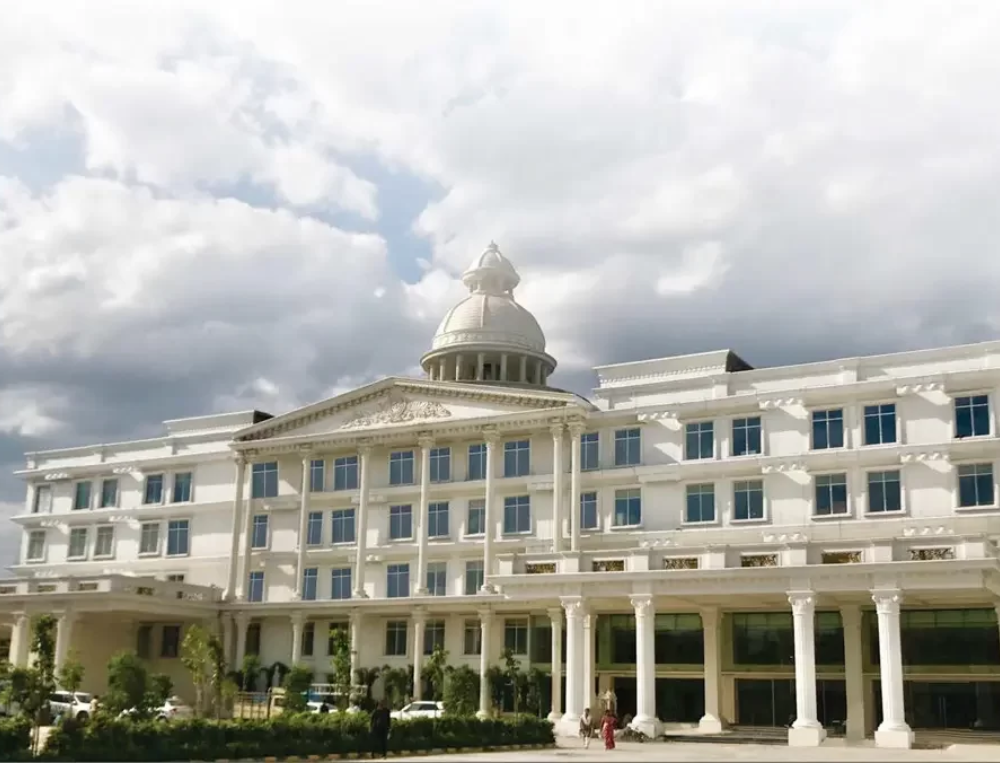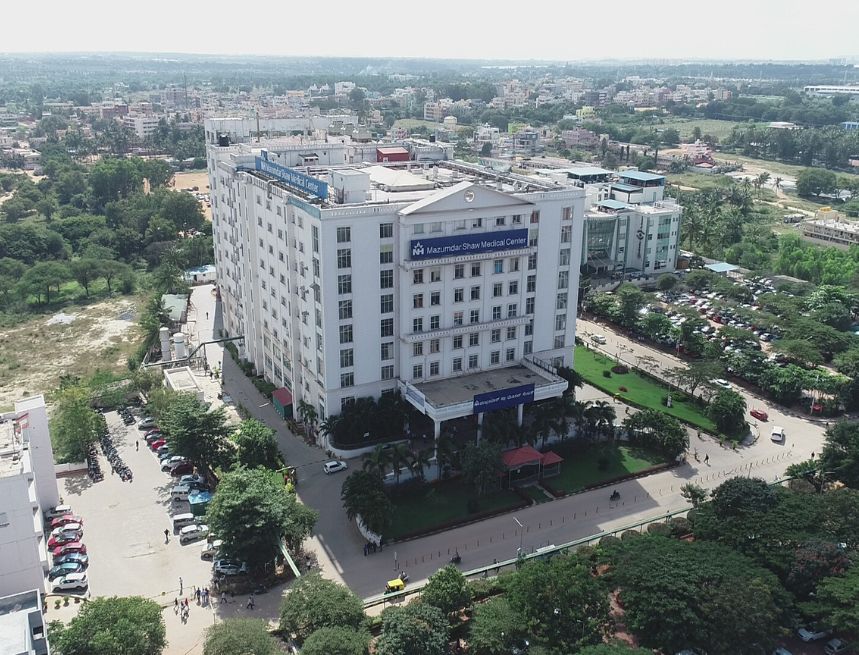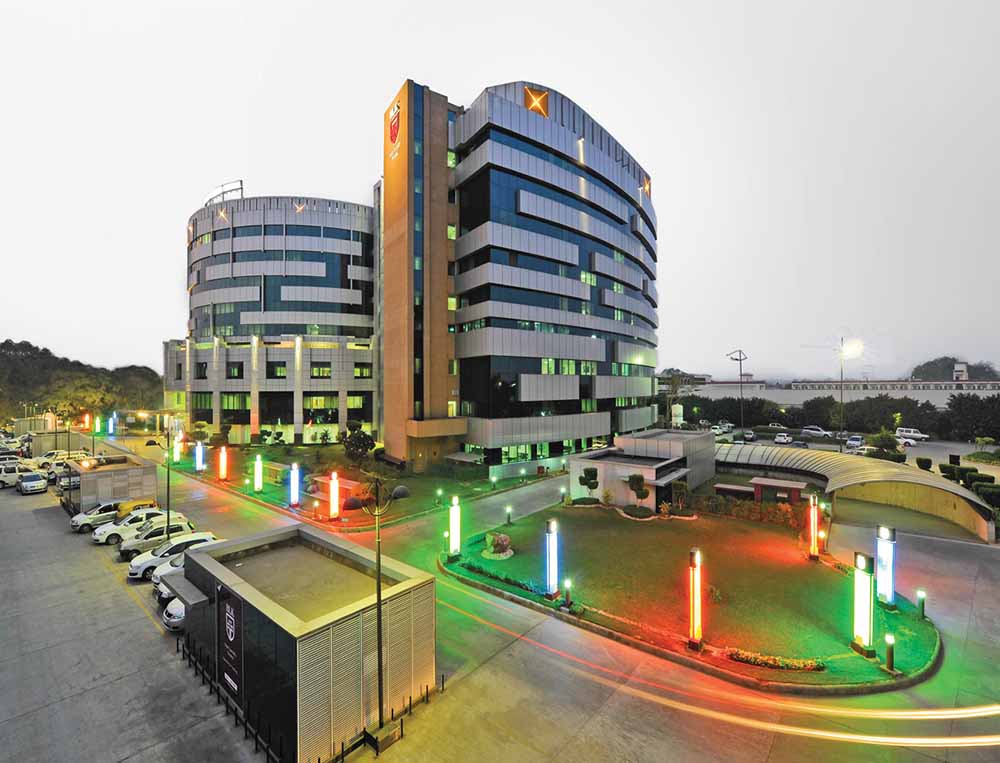Best Clinics for Autologous Bone Marrow Transplantation in India
Autologous bone marrow transplantation is a procedure where a patient's own bone marrow cells are collected, processed, and later infused back into their body after undergoing high-dose chemotherapy or radiation.
This type of transplantation is commonly used to treat various cancers, such as leukemia, lymphoma, and multiple myeloma. It allows for administering higher doses of chemotherapy or radiation, as the patient's marrow cells can be used to reestablish blood and immune cell production. India is renowned for its advanced medical infrastructure, skilled healthcare professionals, and cost-effective healthcare services.
Cost of Autologous Bone Marrow Transplantation in India
| Procedure | Cost |
| Autologous Bone Marrow Transplantation | From $17,000 |

We also believe in transparency. While we ensure all reviews are genuine, we cannot guarantee the accuracy of every detail. Read more about it in our Reviews Policy.
Patients Reviews Criteria




We also believe in transparency. While we ensure all reviews are genuine, we cannot guarantee the accuracy of every detail. Read more about it in our Reviews Policy.
Patients Reviews Criteria

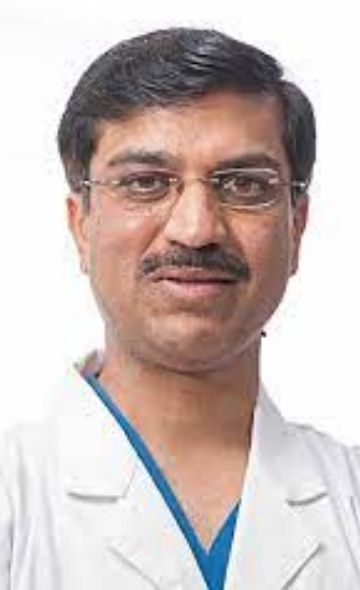
| Procedure | Cost |
|---|---|
| Bone Marrow Biopsy | $ 100 |
| Lymphoma Chemotherapy | $ 850 |
The patient review has been verified Patients Reviews Policy
 Mexico
Mexico
The patient review has been verified Patients Reviews Policy
 South Africa
South Africa
The patient review has been verified Patients Reviews Policy
 Turkey
Turkey
The patient review has been verified Patients Reviews Policy
 Nigeria
Nigeria
The patient review has been verified Patients Reviews Policy
 Egypt
Egypt


We also believe in transparency. While we ensure all reviews are genuine, we cannot guarantee the accuracy of every detail. Read more about it in our Reviews Policy.
Patients Reviews Criteria

| Procedure | Cost |
|---|---|
| Allogenic Bone Marrow Transplantation from a Related Donor | $ 20000 |
| Bone Marrow Biopsy | $ 150 |
The patient review has been verified Patients Reviews Policy
The patient review has been verified Patients Reviews Policy
 Mexico
Mexico
The patient review has been verified Patients Reviews Policy
 Indonesia
Indonesia
The patient review has been verified Patients Reviews Policy
 Canada
Canada
The patient review has been verified Patients Reviews Policy
 Ukraine
Ukraine

We also believe in transparency. While we ensure all reviews are genuine, we cannot guarantee the accuracy of every detail. Read more about it in our Reviews Policy.
Patients Reviews Criteria


The patient review has been verified Patients Reviews Policy
 Mexico
Mexico
The patient review has been verified Patients Reviews Policy
 Mexico
Mexico
The patient review has been verified Patients Reviews Policy
 Canada
Canada
The patient review has been verified Patients Reviews Policy
The patient review has been verified Patients Reviews Policy
 India
India

We also believe in transparency. While we ensure all reviews are genuine, we cannot guarantee the accuracy of every detail. Read more about it in our Reviews Policy.
Patients Reviews Criteria
The patient review has been verified Patients Reviews Policy
 India
India
The patient review has been verified Patients Reviews Policy
 India
India


We also believe in transparency. While we ensure all reviews are genuine, we cannot guarantee the accuracy of every detail. Read more about it in our Reviews Policy.
Patients Reviews Criteria
The patient review has been verified Patients Reviews Policy
 Germany
Germany
The patient review has been verified Patients Reviews Policy
 India
India


We also believe in transparency. While we ensure all reviews are genuine, we cannot guarantee the accuracy of every detail. Read more about it in our Reviews Policy.
Patients Reviews Criteria




| Procedure | Cost |
|---|---|
| Bone Marrow Biopsy | $ 700 |
The patient review has been verified Patients Reviews Policy
 Indonesia
Indonesia
The patient review has been verified Patients Reviews Policy
 USA
USA
The patient review has been verified Patients Reviews Policy
 Austria
Austria
The patient review has been verified Patients Reviews Policy
 India
India
The patient review has been verified Patients Reviews Policy
 India
India


We also believe in transparency. While we ensure all reviews are genuine, we cannot guarantee the accuracy of every detail. Read more about it in our Reviews Policy.
Patients Reviews Criteria


The patient review has been verified Patients Reviews Policy
 Bangladesh
Bangladesh
The patient review has been verified Patients Reviews Policy
 USA
USA


We also believe in transparency. While we ensure all reviews are genuine, we cannot guarantee the accuracy of every detail. Read more about it in our Reviews Policy.
Patients Reviews Criteria
The patient review has been verified Patients Reviews Policy
 Canada
Canada


We also believe in transparency. While we ensure all reviews are genuine, we cannot guarantee the accuracy of every detail. Read more about it in our Reviews Policy.
Patients Reviews Criteria



The patient review has been verified Patients Reviews Policy
The patient review has been verified Patients Reviews Policy
 Scotland
Scotland
The patient review has been verified Patients Reviews Policy
 Nigeria
Nigeria
The patient review has been verified Patients Reviews Policy
 Bangladesh
Bangladesh
The patient review has been verified Patients Reviews Policy
 Spain
Spain
Showing 1-10 of 18 clinics
Why are Indian Clinics a Good Choice for Autologous Bone Marrow Transplantation?
Indian clinics are preferred for autologous bone marrow transplantation due to their advanced medical infrastructure, experienced healthcare professionals, cost-effective services, high success rates, multidisciplinary approach, and comprehensive support services. These clinics provide state-of-the-art facilities, skilled medical teams, and affordable treatment options, making them an attractive destination for autologous bone marrow transplantation patients.
Best Clinics for Autologous Bone Marrow Transplantation in India
- Apollo Hospitals is a leading private hospital chain in India with multiple branches nationwide. They have dedicated transplant units and multidisciplinary teams of hematologists, oncologists, and transplant surgeons who work together to provide comprehensive care to patients undergoing autologous bone marrow transplantation.
- Medanta is known for its advanced medical facilities and wide range of specialized services. Medanta has a dedicated bone marrow transplant unit that offers autologous bone marrow transplantation and other transplant procedures. Their team of experts follows a holistic approach, ensuring personalized care and comprehensive support for patients throughout their treatment journey.
Best Doctors in India for Autologous Bone Marrow Transplantation
- Dr. Deanadayalan M is an experienced bone marrow transplant surgeon with 26 years of experience.
- Dr. Rahul Bhargava is a famous oncohematologist in India with exceptional experience dealing with blood cancer and bone marrow transplants.

Candidates for Autologous Bone Marrow Transplantation
Candidates for autologous bone marrow transplantation include individuals with certain types of cancers and non-malignant diseases. Here are some common conditions that may make a patient a suitable candidate for autologous bone marrow transplantation:
- Hematological malignancies (multiple myeloma, non-Hodgkin's lymphoma, Hodgkin's lymphoma)
- Leukemias (acute myeloid leukemia, chronic myeloid leukemia)
- Solid tumors (neuroblastoma, germ cell tumors, breast cancer)
- Non-malignant diseases (severe aplastic anemia, inherited bone marrow failure syndromes, autoimmune diseases)
Fill out the form or call us for a free consultation 
Need help choosing a clinic or doctor?
Pre-operative Tests for Autologous Bone Marrow Transplantation in India
Pre-operative tests for autologous bone marrow transplantation in India include:
- Complete Blood Count (CBC): Measures the levels of red blood cells, white blood cells, and platelets in the blood.
- Blood Chemistry Tests: Evaluates organ function, including liver and kidney function, electrolyte levels, and blood glucose levels.
- Viral Serology: Tests for the presence of viral infections, such as hepatitis B, hepatitis C, and HIV.
- Coagulation Profile: Assesses the blood's ability to clot properly.
- Pulmonary Function Tests: Measures lung function and determines if the patient can tolerate the conditioning regimen.
- Imaging Studies: Includes chest X-rays and/or computed tomography (CT) scans to evaluate the status of the lungs and identify any abnormalities.
- Echocardiogram: Assesses heart function and detects any pre-existing cardiac conditions.
- Dental Evaluation: Ensures good oral health to minimize the risk of infections during and after the transplantation.
- Other specialized tests: Depending on the patient's medical condition and health history, additional tests may be required, such as genetic tests, bone marrow biopsy, or specific antibody screening.
Fill out the form or call us for a free consultation 
Need help choosing a clinic or doctor?
How is Autologous Bone Marrow Transplantation Done in India?
Autologous bone marrow transplantation in India involves several key steps. Here is an overview of how the procedure is typically performed:
Preparatory phase:
Before the transplantation, the patient undergoes a preparatory phase known as conditioning. This involves high-dose chemotherapy and sometimes radiation therapy to eliminate cancer cells and suppress the immune system. The specific conditioning regimen is tailored to the patient's medical condition and treatment goals.
Stem cell collection:
The patient's bone marrow or peripheral blood stem cells are collected before conditioning. This is done through a process called apheresis, where blood is drawn, processed to separate out the stem cells, and the remaining blood components are returned to the patient's body. The collected stem cells are then cryopreserved (frozen) for later use.
Stem cell infusion:
After the conditioning is completed, the patient's cryopreserved stem cells are thawed and infused back into their bloodstream. The stem cells naturally travel to the bone marrow, where they begin to regenerate and produce healthy blood cells.
Recovery and supportive care:
Following the infusion of stem cells, the patient enters a recovery phase. During this time, the patient is closely monitored for complications and receives supportive care, including antibiotics to prevent infections, transfusions to manage low blood cell counts, and medications to support organ function and manage side effects.
What Happens After Autologous Bone Marrow Transplantation?
After autologous bone marrow transplantation, the patient enters a recovery phase that involves several key aspects. Here's an overview of what typically happens after the procedure:
Engraftment and Blood Count Recovery:
Following the infusion of the patient's own stem cells, the stem cells migrate to the bone marrow and gradually begin to engraft. Over time, they regenerate and start producing new blood cells. The medical team closely monitors the patient's blood counts, including red blood cells, white blood cells, and platelets, to track engraftment and ensure proper recovery.
Supportive Care:
During recovery, the patient receives supportive care to manage potential complications and promote healing. This may include measures such as antibiotic prophylaxis to prevent infections, transfusions of blood products to support blood cell counts, and medications to support organ function and manage side effects.
Infection Prevention and Management:
The patient's immune system remains compromised after the transplantation, making them more susceptible to infections. Strict infection prevention measures are implemented, including isolation precautions, hand hygiene, and careful monitoring for signs of infection. If an infection develops, prompt treatment with appropriate antimicrobial agents is initiated.
Nutritional Support:
Nutritional support ensures the patient receives adequate nourishment during recovery. This may involve dietary modifications, nutritional supplements, and monitoring of nutritional status.
Management of Graft-related Complications:
Although autologous bone marrow transplantation does not carry the risk of graft-versus-host disease (GVHD) seen in allogeneic transplantation, there can still be complications such as mucositis (inflammation of the mucous membranes), gastrointestinal issues, and skin reactions. These complications are managed through supportive care measures, including pain management, mouth care, and skin care.
Psychosocial Support:
The patient and their caregivers receive ongoing psychosocial support to address recovery's emotional and psychological aspects. This may involve counseling, support groups, and access to resources for coping with the challenges associated with the transplantation process.
Follow-up Care:
After discharge from the hospital, the patient continues to receive regular follow-up care and monitoring as an outpatient. This includes periodic visits to the medical team for evaluation, blood tests to assess blood counts and overall health, and imaging studies as needed. The follow-up period can last several months or even years, depending on the patient's progress and specific requirements.

Complications of Autologous Bone Marrow Transplantation
- Infection
- Graft failure
- Organ toxicity
- Mucositis
- Bleeding and clotting disorders
- Fatigue and weakness
- Infertility
- Secondary malignancies




